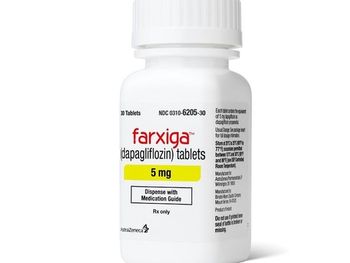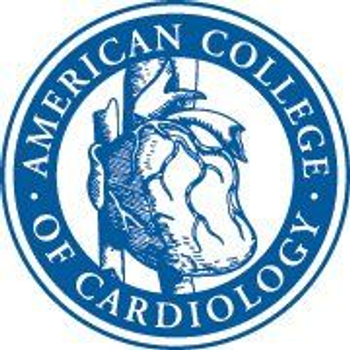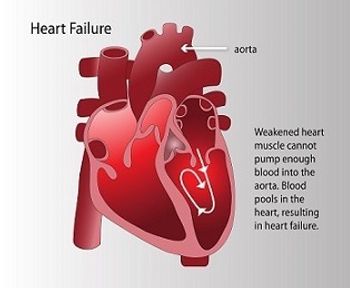
The analysis discusses the strength of evidence that SGLT2 inhibitors have a class effect in preventing heart failure for patients with diabetes.
More than a decade after an FDA mandate for cardiovascular outcomes trials, cardiologists say insights gained on how 2 new drug classes affect heart failure in diabetes should be used to prevent complications. Several sessions at the 68th Scientific Session of the American College of Cardiology addressed this topic.

The analysis discusses the strength of evidence that SGLT2 inhibitors have a class effect in preventing heart failure for patients with diabetes.

People living with HIV are at a greater risk for incident heart failure, with those with higher viral loads and lower CD4+ T cell counts having the greatest risk.

Increased severity of chronic obstructive pulmonary disease (COPD) was associated with an increased risk of mortality and hospitalization in patients with heart failure, according to a recent study published in JAMA Open.

Results presented at the American Heart Association in Chicago provided the strongest evidence to date on what heart failure specialists have discussed for several years now: the possibility that SGLT2 inhibitors might be used to prevent heart failure in patients with type 2 diabetes.

Heart failure hospitalization has been a target for accountable care organizations seeking to find ways to cut costs from the healthcare system. But it remains to be seen how many of the estimated 2 million patients would gain access to the device if it received an expanded indication and payer coverage.

Hospital participants shared how they have utilized technology to enhance care for heart failure patients. Below are some highlights of these resources and initiatives.

In a recent study, researchers looked to determine whether a symptom and psychosocial collaborative care intervention would improve heart failure–specific health status, depression, and symptom burden in patients with heart failure.

Mary Norine Walsh, MD, immediate past president of the American College of Cardiology, discusses the symptoms of peripartum cardiomyopathy, and who is at the highest risk for developing it.

Guidance for primary care physicians prescribing type 2 diabetes therapies comes at an opportune time. A major rift over guidelines for glycemic control has opened between the American College of Physicians, a professional association of internists, and diabetes specialists, including endocrinologists and diabetes educators.

Condition-specific readmissions measures for heart failure, pneumonia, and heart attack may not accurately or fairly reflect hospital quality, according to a study published this week in the Annals of Internal Medicine. The study found significant differences in hospitals' performance when readmissions were assessed for non-Medicare patients and for conditions other than those currently reported, showing that when these additional factors are taken into account, half of the hospitals would be subject to a change in their financial penalty status.

Results from the ODYSSEY Outcomes trial for the PCSK9 inhibitor alirocumab were the top news at the meeting.

The report finds a connection between payment reform and hospital use patterns, but that connection may add to the debate that cardiologists have raised over the effect on patients.

The Patient-Centered Outcomes Institute shared results of 5 recent publications summarizing results from their awardees. The studies included research on a decision aid for patients with heart failure, 2 different approaches to treating mental illness, and addressing chronic pain.

CVD-REAL, the giant study of real-world evidence comparing sodium glucose co-transporter-2 (SGLT2) inhibitors with other glucose-lowering drugs to treat type 2 diabetes, found a 49% lower risk of all-cause death and a host of other benefits across 6 new, more diverse countries, the study’s lead author told a packed room Sunday at the 67th Scientific Session of the American College of Cardiology in Orlando, Florida.

Healthcare reform pledged to do better for patients with heart failure, creating the incentives and team-based approaches these fragile patients need. In some cases, this has happened, but there have also been unintended consequences, according to a panel appearing Sunday at the 67th Scientific Session of the American College of Cardiology, being held in Orlando, Florida.

Patients who had breast cancer or lymphoma who were treated more than 3 times are more likely to develop congestive heart failure than those who did not have cancer, according to research being presented at the American College of Cardiology’s 67th Annual Scientific Session.

A recently published study in JAMA Internal Medicine sought to determine whether a symptom and psychosocial collaborative care intervention improves heart failure–specific health status, depression, and symptom burden in patients with heart failure.

A study being presented at the upcoming meeting of the American College of Cardiology found a dose–response relationship between walking and reduced heart failure risk.

In the next phase of the program, researchers will dig into the data they have gathered so far to identify the best practices for reducing 30- and 90-day readmission rates.

A recent study appearing in the American Heart Association journal Circulation, found that looking at how well hospitals adhere to treatment guidelines for heart failure is more important than comparing patient volumes at hospitals.

Higher resting heart rate (HR) and increases in HR over time are associated with increased risk of adverse cardiovascular (CV) and non-CV events, such as incident heart failure and all-cause mortality, according to a study published in JAMA Cardiology.

The annual meeting of the American College of Cardiology (ACC), which runs March 10-12, 2018, in Orlando, Florida, will open with cardiovascular outcomes results for the PCSK9 inhibitor alirocumab (Praluent). The meeting also features updates on anti-inflammatory drugs, the use of SGLT2 inhibitors in heart failure, and how cardiology is shifting to new healthcare delivery models.

Biomarkers of renal dysfunction, endothelial dysfunction, and inflammation were associated with incident heart failure with reduced ejection fraction. By contrast, only natriuretic peptides and urinary albumin to creatinine ratio were associated with heart failure with preserved ejection fraction (HFpEF), a finding that highlights the need for future studies focused on identifying novel biomarkers of the risk of HFpEF, according to a study in JAMA Cardiology.

Reimbursement structures and population demographics change the way hospitals approach heart failure, explained Amar Bhakta, MD, of Rush University Medical Center.

An interview with one of the authors of a large observational study that has seen findings consistent with recent cardiovascular outcomes trials in SGLT2 inhibitors.

259 Prospect Plains Rd, Bldg H
Cranbury, NJ 08512
© 2025 MJH Life Sciences®
All rights reserved.
